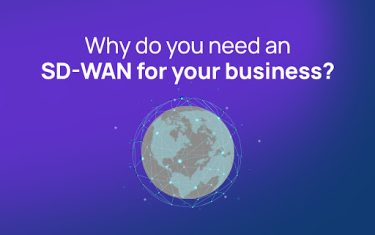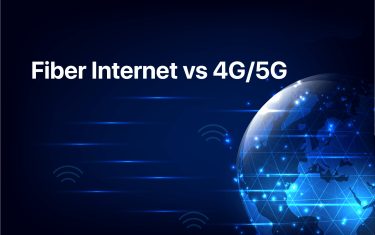January 31, 2022
What is internet & How the Internet Works
What is the internet
To define the internet one can assume a global network of computers and other electronic devices that provides facilities like communication and delivery of information. The idea emerged as an academic research project in 1969. By the 1990s, the internet became a global commercial network. At present, there are more than 4.88 billion internet users in the world. An average of 600,000 new users are reported to join the internet daily. As of 2021, the added time spent by users online on the internet is over 1.3 billion years of human time.
The reason behind the success of the internet technology was that it was decentralized, meaning that it was not owned or controlled by a single person or an organization. Any firm or organization has their own set of networks that they use to communicate and trade with other organizations or individuals using the internet. All this is possible by implying a wide array of devices like the satellites, routers, servers, wifi towers and data centres, distributed all around the globe starting from outer space to the underground.
This incredibly complicated, yet efficient infrastructure is what allows you to search for information, order commodities or food and stream your favourite show or event from anywhere on the planet.
How the internet works

Although it might seem a simple process as it is so fast these days, it actually is a complicated process of how the internet works
- To keep it simple, the internet works with the setting up of servers and clients. For instance the client can be a computing device, like a laptop that is directly connected to the internet. Whereas the servers are large computers that have all the websites in their storages. These servers are also connected to the internet but indirectly, that is, with the aid of Internet Service Providers or ISP. Both the servers and the client will be identified by their IP addresses, which is unique to each device.
- Now, all the websites have a Domain name as it is impossible for a person to memorize the long string or numbers. When you input any domain name in the search bar of your browser, a request will be sent to the server. This server in turn will search the IP address of the Domain name. This search will be conducted in the Domain Name Server or DNS. For ease of understanding, imagine a big phone directory, which is the DNS and the phone numbers in it are the IP addresses.
- After the IP address is retrieved from the DNS, your browser will release another request to the respective server and now the server will evaluate the request in order to display the content of your desired website. In case of a wireless connection like 4G or any such mobile data, the data flow will begin from the optical cables and reach the towers and then to your cell phone or your laptop in the form of electromagnetic waves.
While the internet has become an integral part of our daily life. We communicate to vast distances within seconds and order our favorite dress or food using the internet. These positive aspects of the internet is what enables us to improve the technology even more. With every day there is some new advancement made and the internet is becoming more and more quickly available, with higher download speed, faster streaming and increase in area distribution.
But what does the future hold? It is also the prime time to suspect the negatives of this technology so that this boon does not transform into a curse. Users should be more considerate and conscious of the capabilities that the internet poses. Using this technology responsibility will help the human community to prosper but any tampering can lead to major casualties. Being aware of the power of the possession we have is very important and by doing so we can help the technology of the internet keep being the boon for our upcoming generations.
At Zajil International telecom we have been bringing the latest technology to our consumers since 1991. Our journey began as Kuwait’s first Internet Service Provider and the region’s leading Connectivity (MPLS) Service Provider. Today by partnering with global telecom and technology leaders, Zajil provides end-to-end connectivity, cloud and managed services. With the trust of our customers we are now one of the major Data Center Services providers in the Middle East. Be a part of our journey as we strive to help our customers connect more.




